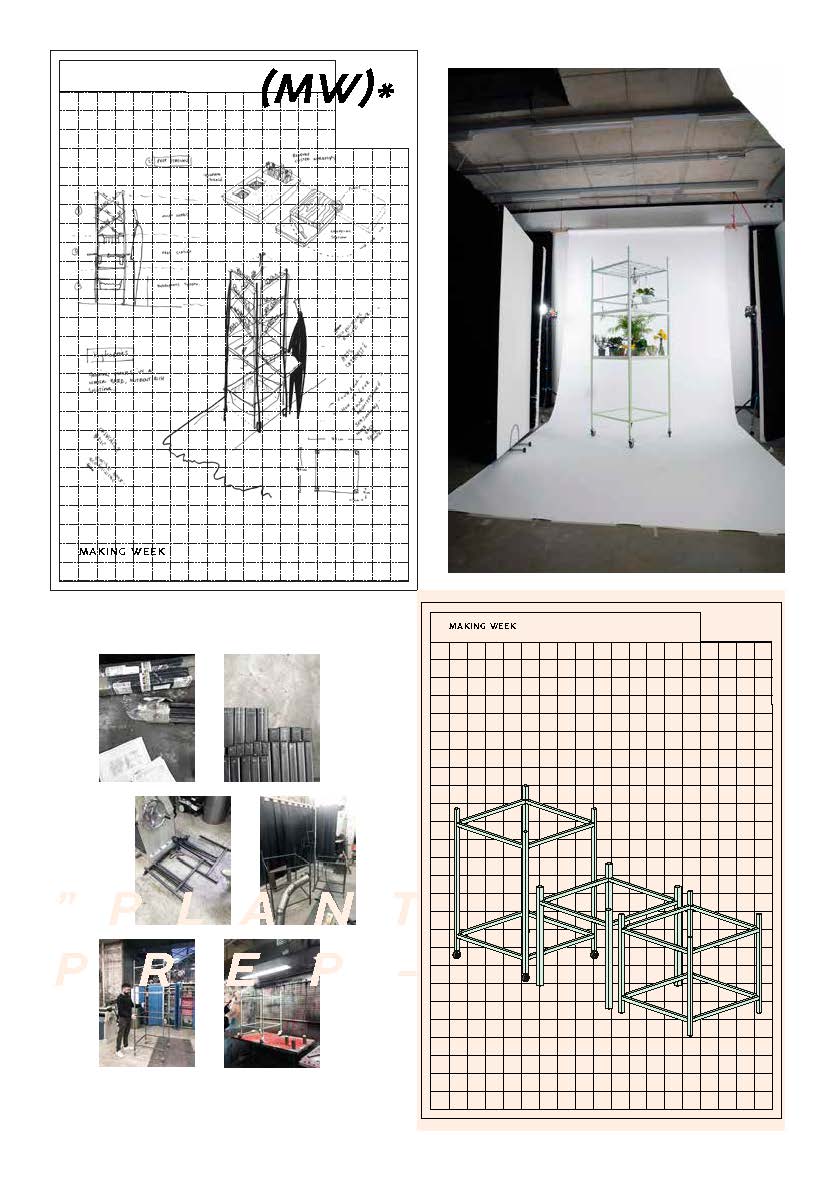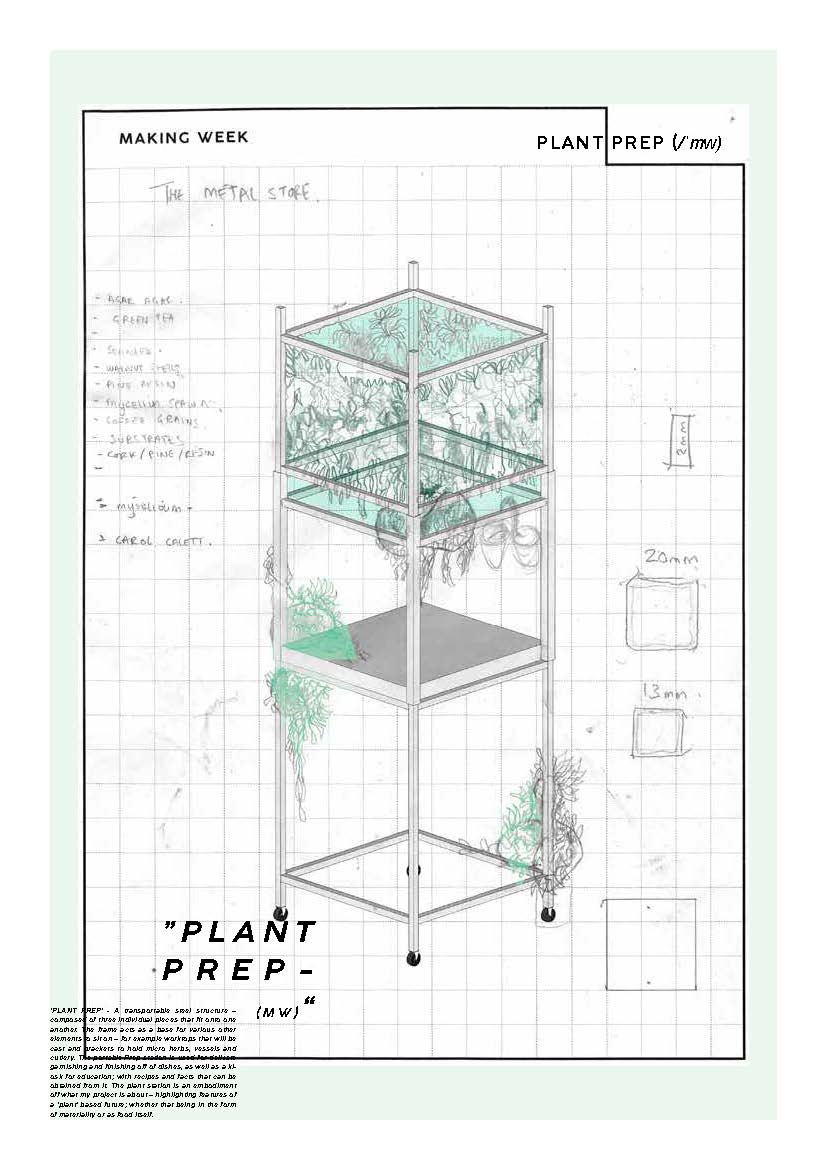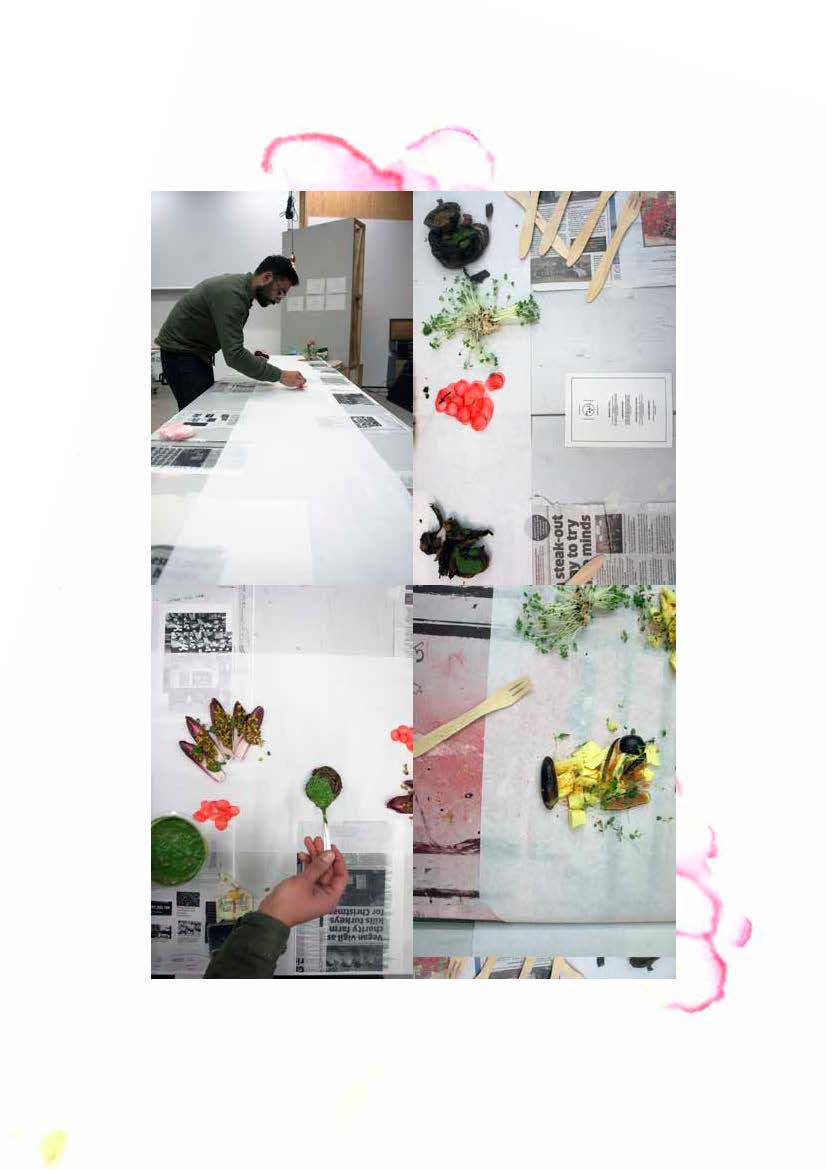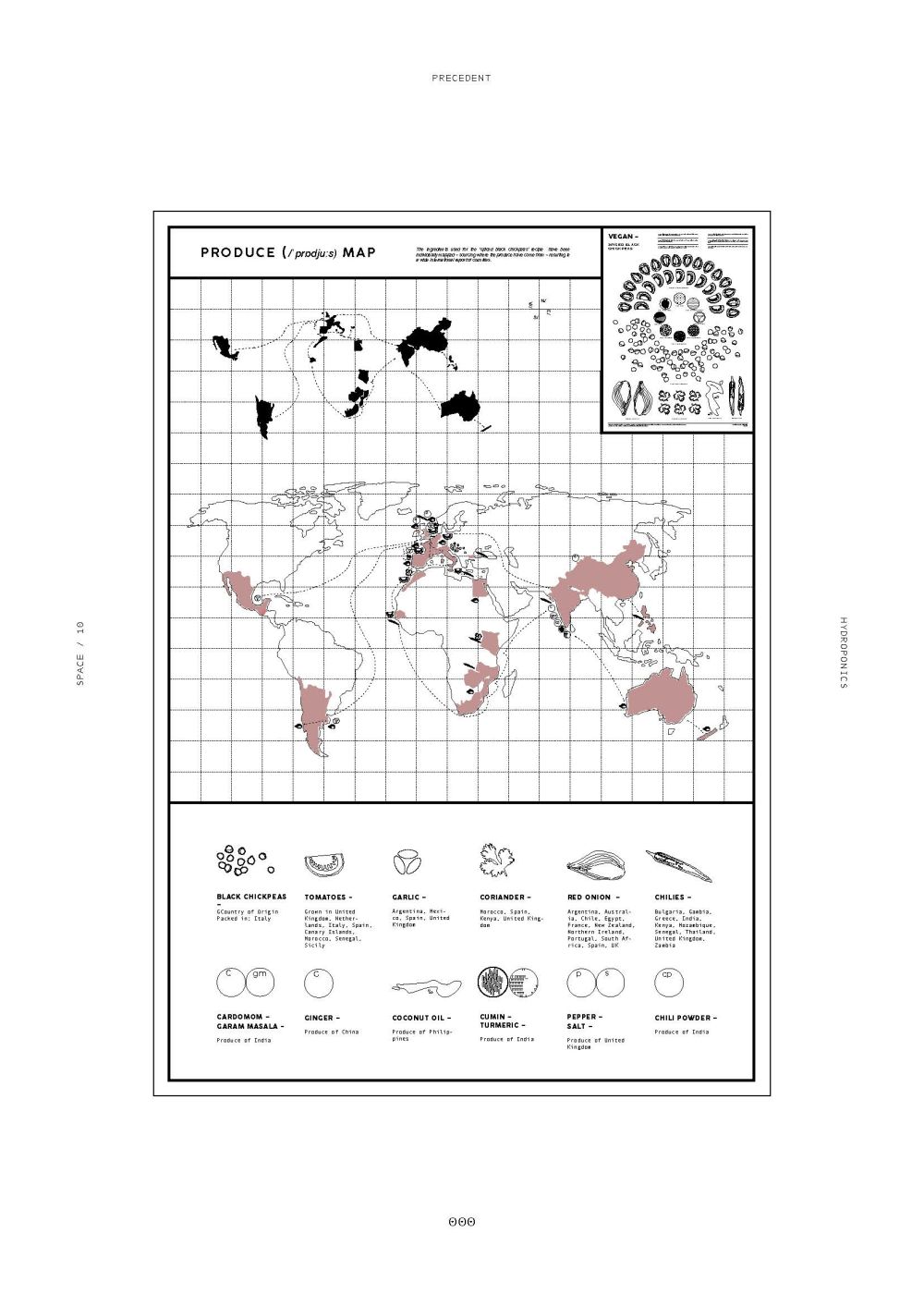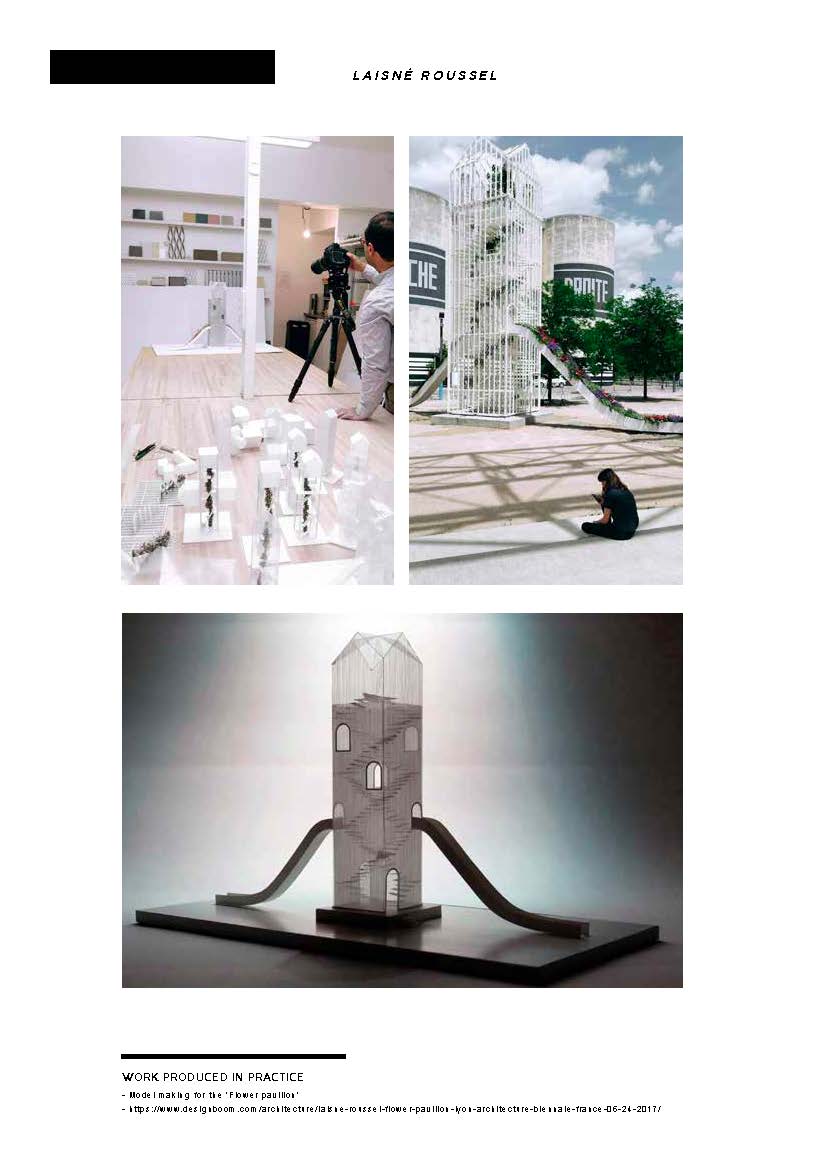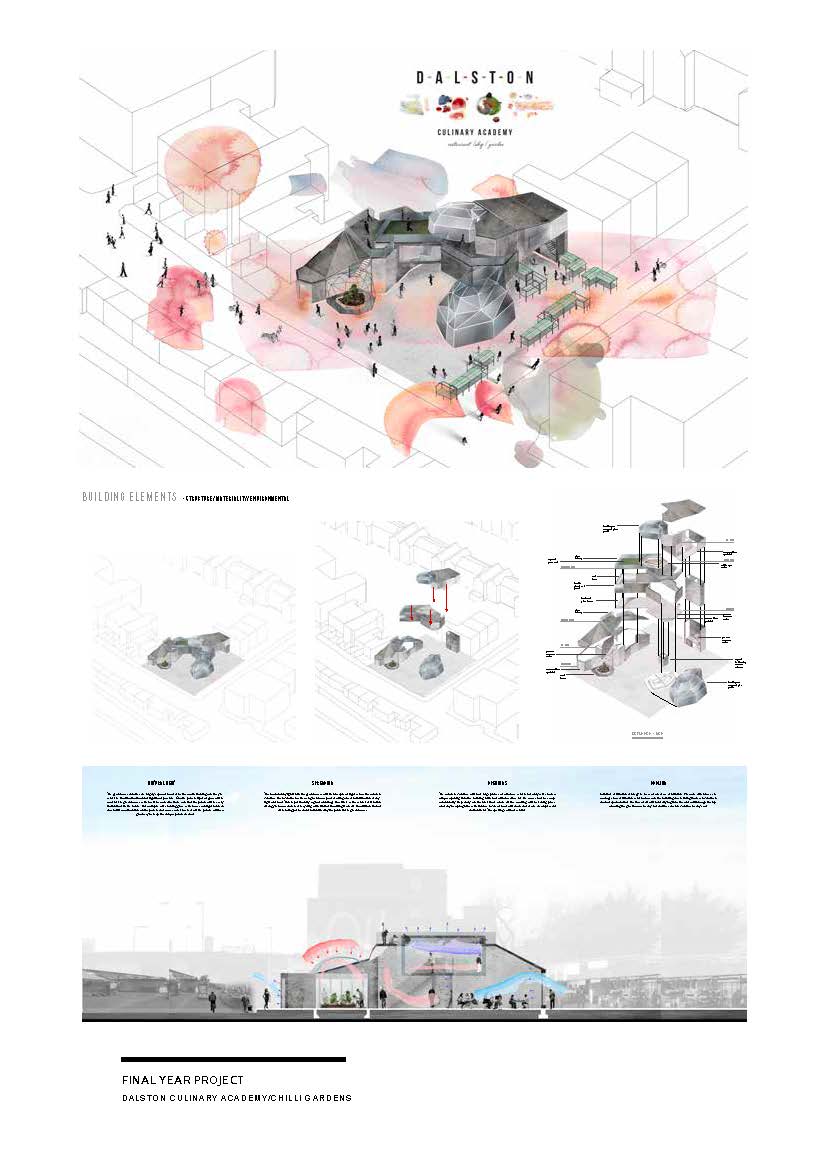Rohit Nandha has been selected as the AER artist in residence at Domaine de Boisbuchet, Design Architecture Nature, Lessac, France.
Boisbuchet's intensive workshop programmes invest deeply in cultures that respect the past and build for the future.
Set up by Professor Lucy Orta UAL Chair of Art for the Environment - Centre for Sustainable Fashion in 2015, The Art for the Environment International Artist Residency Programme (AER) provides UAL graduates with the exceptional opportunity to apply for short residencies at one of our internationally renowned host institutions, to explore concerns that define the 21st century – biodiversity, environmental sustainability, social economy, and human rights.
Gallery
Read Rohit Nandha's successful residency proposal:
The relationship between man and food has been at the core of civilisation for as long as the human race has existed. It is a fundamental necessity in our everyday lives and what we consume has a much bigger impact on the world - yet in reality many of us could not be more disengaged from the bigger picture. Architecture as a practice has the ability to structure and shape people’s lifestyles. Lifestyles that are beginning to shift in the not so distant future - rapidly growing consumer awareness and changing eating habits are starting to comprehend the influence and capability that these actions play within the social food realm. Amongst the wider global system that needs to rapidly change is of ‘land use’; and as though it may seem that we do not have control over this issue, we play a significant part that influences the broader system.
“We can cut our consumption of everything else almost to zero and still we will drive living systems to collapse, unless we change our diets” (Monbiot, 2018).
A ‘plant-based’ diet is a key derivative in sustaining the longevity of the planet and of people’s personal health. How can architecture play a role in influencing / directing / guiding consumers into a healthier / meat free lifestyle? What is the future plant-based city?
The project I am working on is personal to me. Personal in a sense that food has played a significant part in my upbringing. Like everyone on the planet each individual has a story to tell and traditions and rituals that they follow. Food has the power to evokes certain memories and senses and being of an Indian heritage – my story begins with the idea of ‘all beings are sacred’. Having been raised by a strict family– I’ve never known a life where meat was ever relevant in my life – Though I didn’t question it as a kid, I slowly began to realise that the banning of meat in my household had to be for a reason. That reason stemmed from religion – with both Hindu and Sikh parents, I followed the routes that my family had followed, with the majority of my practices being related more closely to Hinduism.
Passages laid out dietary law. From Bhagavad-Gita 9:27: “If one offers Me with love and devotion a leaf, a flower, fruit or water, I will accept it” (Bg. 9.26).
Many assumed that Lord Krishna (the narrator in this scripture) is entreating that no meat, fish, or eggs should be offered or eaten, hence to this day many Hindus do not consume animal products.
Vegetarianism has served me well throughout my life – not only nutritiously but also creatively. In a circle of friends where I was often the odd one out, my mind began to always think of alternative ways to adapt and make meals exciting. As I began to grow older, the decisions I began to make were of my free will. The fact that I could eat meat if I wanted to– However, was it something that I wanted to do? I can’t miss something that I’ve never had. And in the current state where meat plays a bigger part in global issues, do I really want to be adding to those numbers?
My project is about speculating the future of the food system, by looking at the impact and problems that the meat industry plays and how adopting a plant-based lifestyle will potentially be the answer to the majority of the wider concerns related to the issues.
Three major issues:
- GLOBAL ENVIRONMENT - CLIMATE CHANGE
- HEALTHCARE
- ANIMAL WELFARE
Throughout my master’s project in architecture, I have been involved in many workshops and have delivered many experiences – such as immersive tasters, using plant based cooking, and formulating recipes to help others. It would be exciting to further develop my interest in architecture and food in a new context, in an environment that is out of the city, allowing me to be absorbed within the ‘natural edible landscape’.
During the residency, I hope to develop my knowledge and senses and formulate ways that can further enhance the future of a plant based cuisine.
Key:
- PLANT BASED
‘A plant-based diet is a diet based on foods derived from plants, including vegetables, whole grains, nuts, seeds, legumes and fruits, but with few or no animal products.’ - VEGANISM
‘Veganism is the practice of abstaining from the use of animal products, particularly in diet, and an associated philosophy that rejects the commodity status of animals.’
